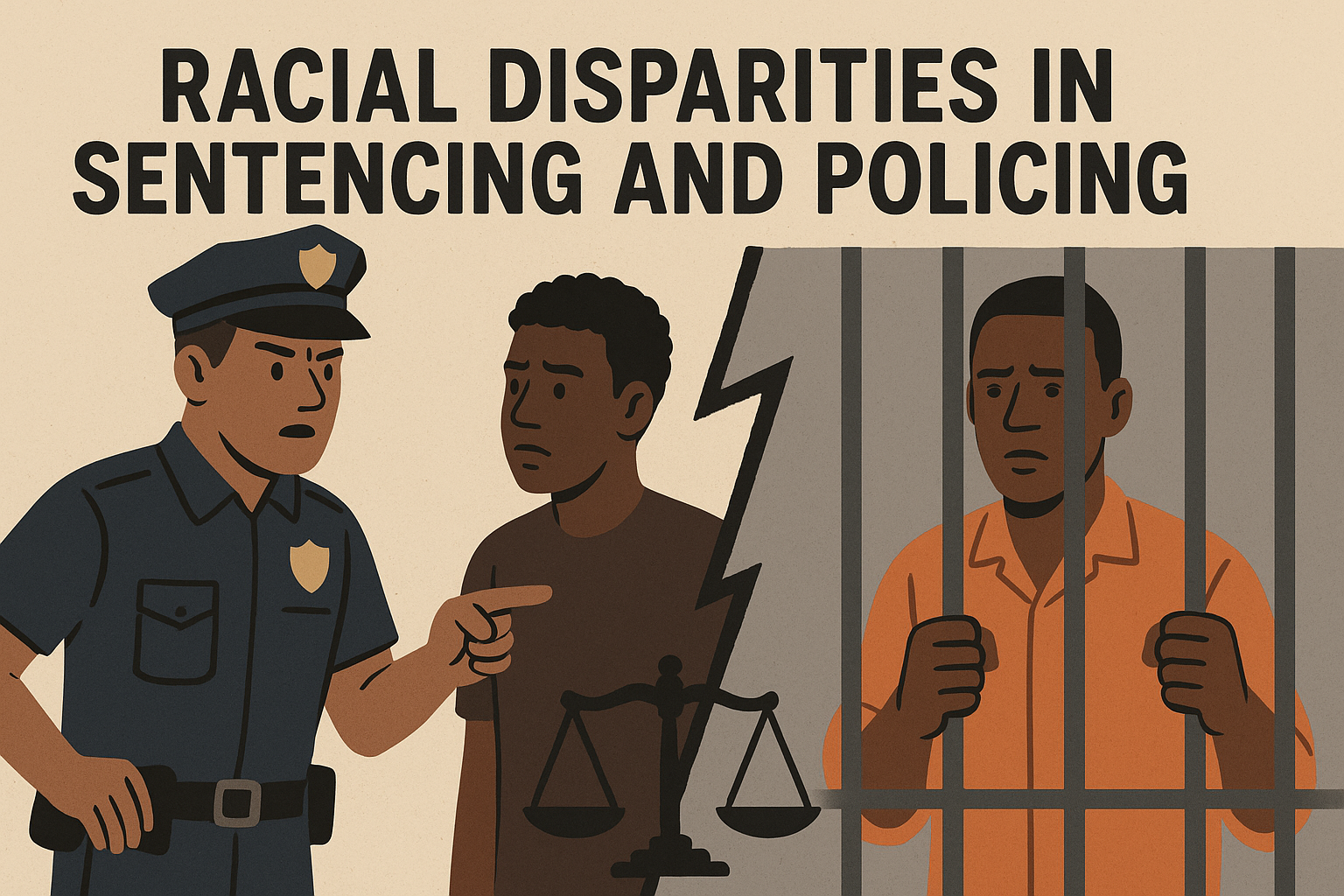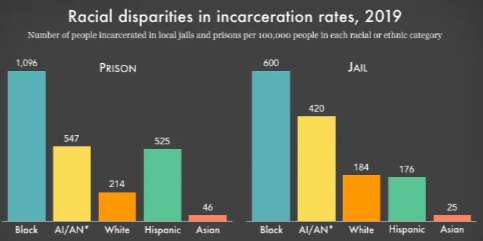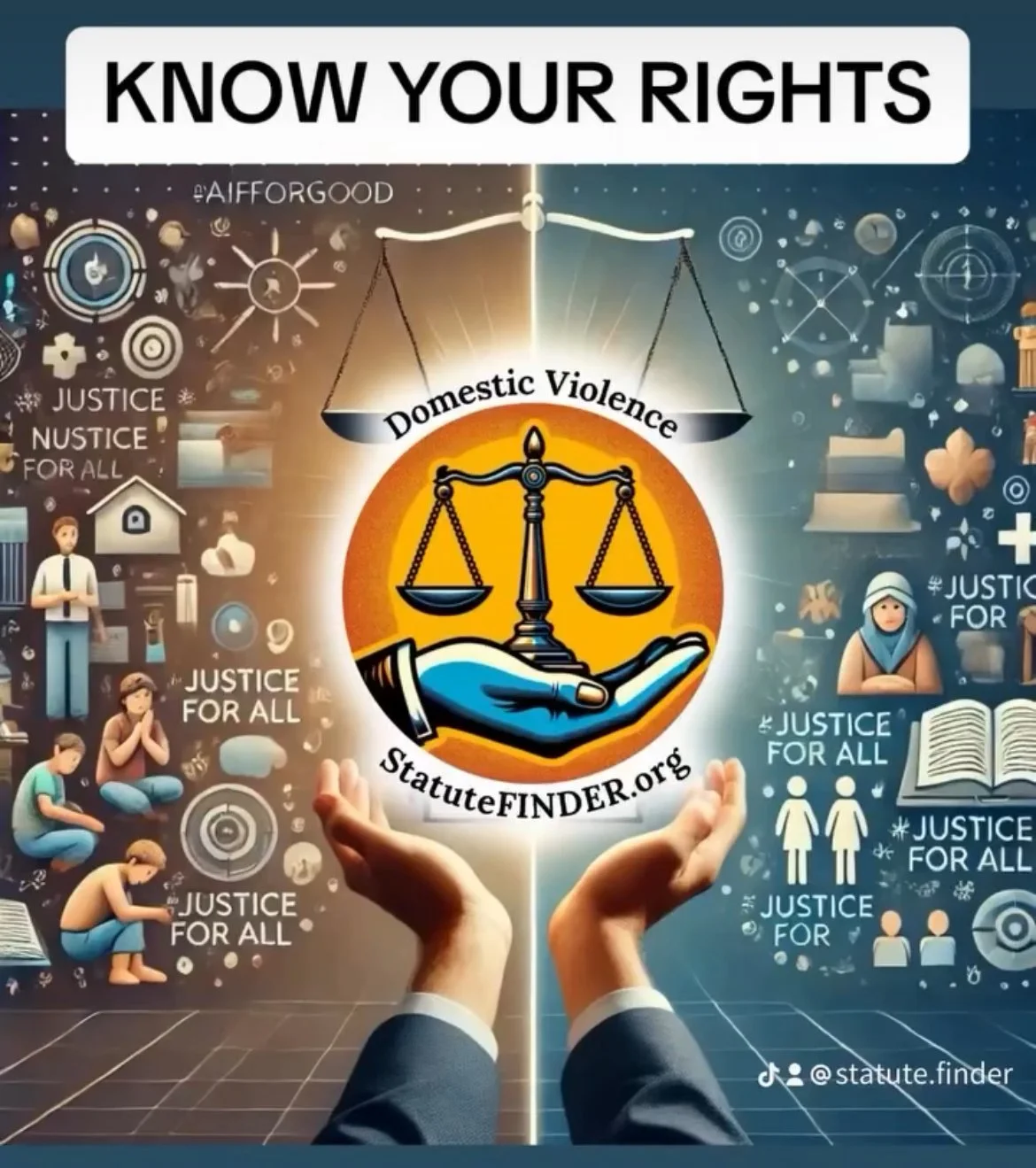Racial Disparities in Domestic Violence Sentencing And Policing—How Can StatuteFINDER Help?
Research shows some communities face tougher policing and sentencing when it comes to domestic violence. StatuteFINDER helps people learn their rights—and push for fairer outcomes.
As of September 28, 2025.
Introduction
Racial disparities are one of the greatest challenges we face within our justice system in domestic violence. More often than not, people of African, Hispanic, and Indigenous descent are more likely to be stopped by the police and receive longer and harsher sentencing when domestic violence is involved. Getting rid of the “bad apples” in the community may appear to help the problem; however, minority communities are disproportionately impacted at every stage of the justice system.
This blog will explain how the justice system's apparent unfair treatment is affecting minority communities and how StatuteFINDER can assist minorities in their time of need, free of charge.
Source: Bureau of Justice Statistics, Jail Inmates in 2019 and Prisoners in 2019. Appendix Table 2. Prison incarceration rates for AI/AN and Asian populations calculated by Prison Police Initiative from Census 2010.
The reality of minorities who are disproportionately targeted:
These minority groups are more likely to get stopped by police officers, be searched during traffic stops, and are 3 times more likely to be threatened with force when interacting with police officers.
These minority groups have double the rate of getting searched or arrested than white people, even if the same crime was committed.
These minority groups are 5 times more likely to be incarcerated and have longer sentences at higher rates than white people.
Contributing Factors Include:
Economic disadvantages: Targeting minority communities because they have higher crime rates, these groups become distrustful of the police.
Racial profiling: Discriminating against minorities as criminals and targeting them because of their race.
Implicit Bias: An unconscious or conscious action of categorizing minorities based on stereotypes.
What Could We Do To Reform The Justice System?
The justice system has many flaws; reforms are needed to make the justice system more reliable.
Prioritizing rehabilitation rather than punishment, being able to establish the root cause of the problem, and supporting those who struggle with mental health or substance abuse problems. While also addressing systemic issues:
Work to eliminate racial profiling and raise awareness about how marginalized communities are being disproportionately impacted.
Ensure that everyone has access to an attorney, regardless of their ability to pay for one.
Have communities actively be involved with incarcerated people so they don't feel forgotten.
Need to be more transparent to identify problems like racial disparities in sentencing and policing methods.
How StatuteFINDER Can Help:
As a domestic violence alleged abuser, it’s important to understand your rights and know about the laws that are affecting you unfairly. That’s where StatuteFINDER comes in:
Informing alleged abusers on how to defend themselves or others who are experiencing injustice.
Assisting individuals to legal protections that may apply to them.
Assisting users in identifying state and local laws that relate to police stops, arrests, and sentencing.
Note: Innocent until proven guilty. False allegations are a form of domestic violence abuse. Many times, innocent parties are falsely accused of being abusers when they’re in fact the victims in domestic violence relationships. Being a minority can compound the problem.
Final Thought:
StatuteFINDER is a free tool that gives you resources to advocate for yourself or others who don't have the money or power to defend themselves. Whether you’re a concerned citizen or a student in high school, StatuteFINDER gives you the tools to understand and challenge racial disparities in your community.
Injustice prevails in the silence of those who don't dare to speak up. Knowledge is power, and StatuteFINDER helps put that power in your hands.
How to Use StatuteFINDER
If you want to learn more about StatuteFINDER or how to use the StatuteFINDER app, click the video below:
Guest Author: Brenda Gallello
Brenda Gallello is a passionate law student pursuing her passion in criminal and civil law. She actively participates in debates, volunteers in a political campaign, and aspires to learn more about criminology and psychology.
Works Cited
Bryant, Erica. “Eight Ways You Can Advance Justice Reform in 2024.” Vera Institute of Justice, 4 Jan. 2024, www.vera.org/news/eight-ways-you-can-advance-justice-reform-in-2024. Accessed 14 May 2025.
National Conference of State Legislatures. “Racial and Ethnic Disparities in the Criminal Justice System.” Www.ncsl.org, National Conference of State Legislatures, 24 May 2022, www.ncsl.org/civil-and-criminal-justice/racial-and-ethnic-disparities-in-the-criminal-justice-system. Accessed 13 May 2025.
Unlocking the Black Box: How the Prosecutorial Transparency Act Will Empower Communities and Help End Mass Incarceration. www.aclu.org/sites/default/files/field_document/aclu_smart_justice_prosecutor_transparency_report.pdf. Accessed 14 May 2025.




